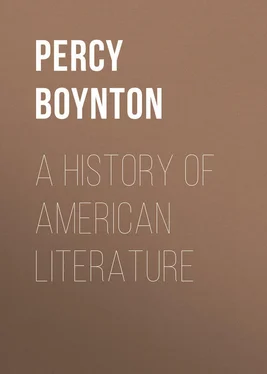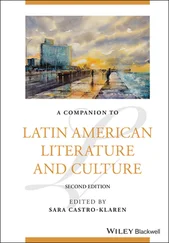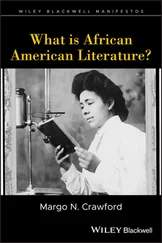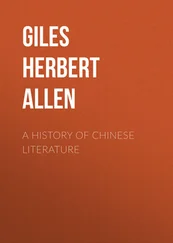Percy Boynton - A History of American Literature
Здесь есть возможность читать онлайн «Percy Boynton - A History of American Literature» — ознакомительный отрывок электронной книги совершенно бесплатно, а после прочтения отрывка купить полную версию. В некоторых случаях можно слушать аудио, скачать через торрент в формате fb2 и присутствует краткое содержание. Жанр: foreign_antique, foreign_prose, на английском языке. Описание произведения, (предисловие) а так же отзывы посетителей доступны на портале библиотеки ЛибКат.
- Название:A History of American Literature
- Автор:
- Жанр:
- Год:неизвестен
- ISBN:нет данных
- Рейтинг книги:4 / 5. Голосов: 1
-
Избранное:Добавить в избранное
- Отзывы:
-
Ваша оценка:
- 80
- 1
- 2
- 3
- 4
- 5
A History of American Literature: краткое содержание, описание и аннотация
Предлагаем к чтению аннотацию, описание, краткое содержание или предисловие (зависит от того, что написал сам автор книги «A History of American Literature»). Если вы не нашли необходимую информацию о книге — напишите в комментариях, мы постараемся отыскать её.
A History of American Literature — читать онлайн ознакомительный отрывок
Ниже представлен текст книги, разбитый по страницам. Система сохранения места последней прочитанной страницы, позволяет с удобством читать онлайн бесплатно книгу «A History of American Literature», без необходимости каждый раз заново искать на чём Вы остановились. Поставьте закладку, и сможете в любой момент перейти на страницу, на которой закончили чтение.
Интервал:
Закладка:
Unhappily this heroic trait of Puritanism was coupled with a desperate religious bigotry which the world is even yet slow to forgive.
One of the earliest local dissenters was Thomas Morton (1575? -1646), author of the “New English Canaan,” published in London, 1637. It is a half-pathetic fact that this should stand out to-day beyond anything else written in the same decade in America, for the best of it – the third book – is a savage satire on the Puritans in Massachusetts. Morton, it is needless to say, was not a Puritan himself. He was a restless, dishonest, unscrupulous gentleman-adventurer from London who gave the best part of his life to fighting the Puritans on their own grounds. He started a fur-trading post at “Merry Mount,” just southeast of Boston, sold the Indians liquor and firearms, consorted with their women, and in wanton mockery set up a Maypole there and taught the Indians the English games and dances which were particularly offensive to the grave residents of Plymouth and Boston. If he had not written his book, he would be remembered now only as one of the chief trouble-makers whom the Puritans had to fight down; but he did them more damage with his pen than with all his active misbehavior. He undermined their influence by not treating them soberly. He made fun of their costume, derided their speech, ridiculed their religious formalities, and held the valiant Miles Standish up to scorn by nicknaming him Captain Shrimp. He went further, and questioned their motives and their honesty, their integrity in business, and their sincerity in religion. A great deal of what he wrote about them was libelously unfair; he should never be taken as an authority for facts unless supported by other writers of his day. But underneath all his clever abuse of them and their ways, there is an evident basis of truth which is confirmed by the sober study of history. Although the Puritans were brave, strong, self-denying servants of the stern God whom they worshiped, they were sometimes sanctimonious, sometimes cruelly vengeful, and all too often so eager to achieve His ends on earth that they were regardless of the means they took. At the very beginning of their life in America, Thomas Morton held these characteristics up to public scorn; and in so doing he made his book an omen of the long, losing battle they were destined to fight. Morton’s effectiveness as a writer lies in the fact that however ill-behaved he may have been, he was attractively – maybe dangerously – genial in character. He was in truth “a cheerful liar”; but he lied like the writer of fiction who disregards the exact facts because he is telling a good story as well as he can and because that good story is based on real life. The next New Englander to give proof that the Puritans were not having an easy time in their “new English Canaan” was Nathaniel Ward (1578-1652?), author of “The Simple Cobler of Aggawam.” In character and convictions he was as different from Morton as a man could be. When he wrote this book, which was published in London in 1647, he was an irascible old Puritan who had suffered much for his faith, and was still fighting for it, although very near to his threescore years and ten. He had been graduated at Cambridge, gone into the Church of England, been hounded there for his liberalism, come to America, and served a pastorate at Agawam (now Ipswich), Massachusetts. He had withdrawn on account of ill health, but later had served the state so well that he was granted six hundred acres as a reward, and had lived on there until his return to England at the age of seventy. He believed fiercely in the righteousness of the Puritan doctrines and in the wickedness of any departure from them; and his book was a valiant protest against any relaxation on the part of the faithful. It was written with reference to conditions in England, but it was composed after fifteen years’ residence in America, and showed his unrest at conditions in the new country as well as in the old.
The book is a strange compound. In thought it is a piece of dyed-in-the-wool old fogyism, but in form and literary style it is vigorous, jaunty, and amusing. The full title is “The Simple Cobler of Aggawam in America; willing to help Mend his Native Country, lamentably tattered, both in the upper-Leather and sole, with all the honest stitches he can take. And as willing never to be paid for his work by Old English wonted pay. It is his Trade to patch all the year long, gratis. Therefore I Pray Gentlemen keep your Purses.” He feared all innovations, but most of all the doctrine that men should enjoy liberty of conscience. “Let all the wits under the Heavens lay their heads together and find an Assertion worse than this [and] I will Petition to be chosen the universal Ideot of the World.” “Since I knew what to fear, my timorous heart hath dreaded three things: a blazing Star appearing in the Air; a State Comet, I mean a favourite, rising in a kingdom; a new Opinion spreading in Religion.” The second section of the book is devoted to fashions of dress, an evergreen subject for the satirist. Ward’s attitude toward woman as an inferior creature was almost as primitive as that of the cave man, and apparently he would have liked it better if the "bullymong drossock” had dressed with the simplicity of a cave woman. As it was he felt that the lady of fashion was “the very gizzard of a trifle, the product of the quarter of a cypher, the epitome of Nothing”; and he had equal contempt for tailors who “spend their lives in making fidle-cases for futulous Women’s phansies; which are the very pettitoes of Infirmity, the giblets of perquisquilian toyes.” The remainder of the work is given to a discussion of affairs of English state, written with the same aggressive positiveness. The most interesting bit of it is the portion which proclaims his belief in savage oppression of the Irish, summing up the essence of the wrong-headed stupidity which has made the history of Ireland so lamentable a story even to the present time. What the old gentleman wrote is striking at points, because it seems so timely. But Ward was never up to date, in the sense of being prophetic. When he said things that apply to the twentieth century, they apply either because, like the question of extravagance in dress, the topic is a persistent trait in human nature or because, like the Irish problem, matters which should long ago have been settled have been allowed for centuries to confuse and complicate life. Yet Ward wrote with odd and striking effectiveness; and his book is far more than the “curiosity” which many critics have agreed to call it, for it is one of the best surviving records of the Puritan attempt to maintain a strangle hold on human thought.
The belief in the righteousness of persecuting dissenters was the particular ground for attack by a younger and equally vigorous man, Roger Williams (1604-1683). Williams, before he was forty years old, had been thrown out of two church establishments – first in Protestant England and then in Puritan Massachusetts. He represented what Macaulay termed the very “dissidence of dissent.” And now, in a long and laborious argument lasting from 1644 to 1652, he fought out the issue with the Reverend John Cotton. Only by the most generous interpretation can the lengthening chain of this printed controversy be considered as literature, yet it has the same right to inclusion as the English disquisitions of Wyclif, Jeremy Taylor, and John Wesley. An English prisoner in Newgate, assailing persecution for cause of conscience, had been answered by John Cotton. Then followed Williams’s “The Bloody Tenent of Persecution for cause of Conscience, discussed in a Conference between Truth and Peace” (1644); Cotton’s reply “The Bloody Tenent washed and made white in the Blood of the Lamb” (1647); and Williams’s rejoinder, “The Bloody Tenent yet More Bloody: by Mr. Cottons endeavor to wash it white in the Blood of the Lambe” (1652). The whole process of argument by both the reverend gentlemen was to set their literal English minds to work at analyzing and expounding Biblical passages which were full of oriental richness of imagery. It was, all things considered, rather less reasonable than it would be for the chancellors of the British and German empires to base an argument about the freedom of the seas upon definite citations from the “Rubaiyat” of Omar Khayyam.
Читать дальшеИнтервал:
Закладка:
Похожие книги на «A History of American Literature»
Представляем Вашему вниманию похожие книги на «A History of American Literature» списком для выбора. Мы отобрали схожую по названию и смыслу литературу в надежде предоставить читателям больше вариантов отыскать новые, интересные, ещё непрочитанные произведения.
Обсуждение, отзывы о книге «A History of American Literature» и просто собственные мнения читателей. Оставьте ваши комментарии, напишите, что Вы думаете о произведении, его смысле или главных героях. Укажите что конкретно понравилось, а что нет, и почему Вы так считаете.











